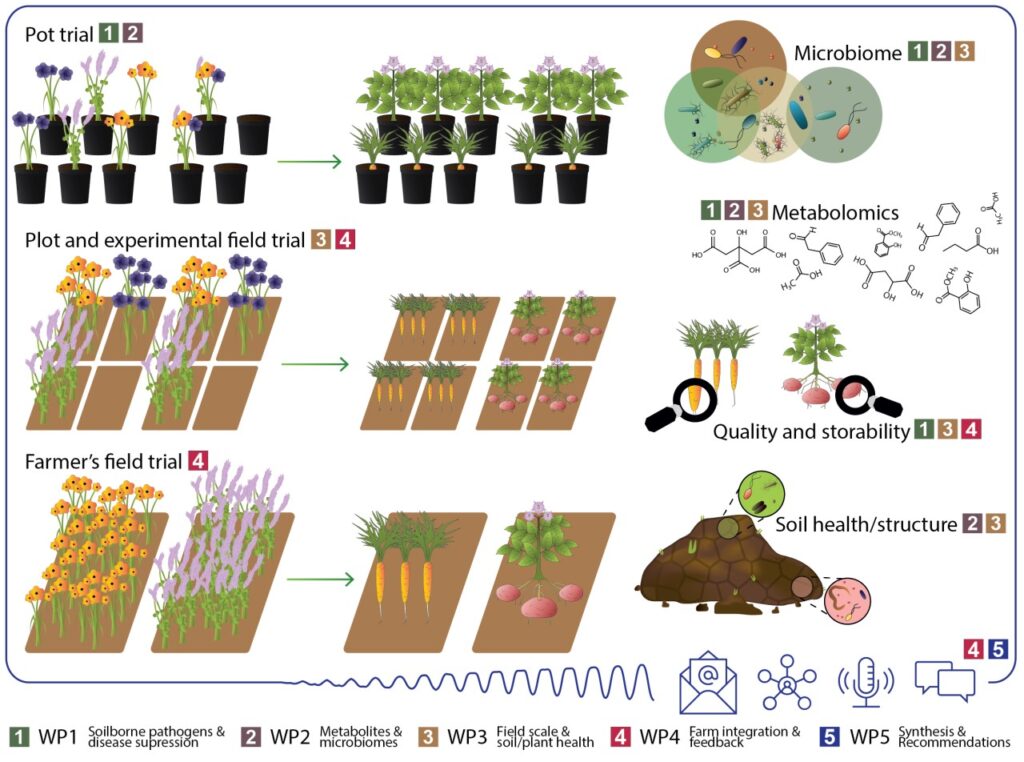Understanding the effect of cover crops on soil health, soilborne pathogens, yield and quality of potatoes and root vegetables
The Norwegian agricultural value chain actors for potato and vegetable production aim for a 50% increase of the domestic share within 2035. Carrots and potatoes are important agricultural crops in Norway, but there are major challenges with plant disease both in the field and in storage. Cover crops have the potential to be an important tool for a sustainable increase in vegetable and potato production and there are several recent projects exploring this potential. However, there is a lack of studies that look at how cover crops contribute to good soil health and at the same time consider the effect on soilborne plant pests such as fungi, bacteria and nematodes.

CropDrive aims to identify a selection of cover crops suitable for use in root vegetable and potato production with beneficial impacts on both soil and plant health, and greenhouse gas exchange. We will test a number of cover crops and measure trends in the occurrence of primary and secondary metabolites, e.g., amino acids, organic acids and phenols in the root zone. We will evaluate how these metabolites affect the growth and quality of potatoes and carrots. Further validation of the proposed cover crops will be done under field conditions in experimental fields and with selected growers, with measurements of selected parameters for good soil health, -structure and -physical conditions, greenhouse gas exchange, occurrence of soilborne plant pests and effects on crop quality in the field and during storage. The output from CropDrive will provide documented recommendations on the choice of cover crops and necessary adaptations of cropping practices to ensure successful use in root vegetable and potato production. The project is a collaboration between research institutes, value chain partners (agricultural advisers, farmers associations, industry partners), administrative bodies in agriculture and food safety, and international scientific experts.
Collaboration Project (led by NIBIO)
Time period: 2023-2027
Link to webpage at NIBIO